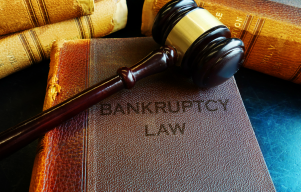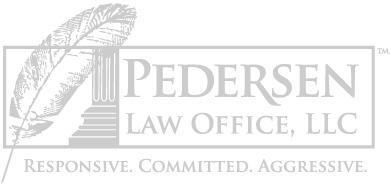How Often Can You File Bankruptcy
Oct 24, 2017

WHAT IS A BANKRUPTCY DISCHARGE
A bankruptcy discharge releases you from the personal liability of all of your dischargeable debts. The discharge is an order prohibiting creditors from taking any form of collection action against you. Receiving a discharge of debts is typically the goal when filing for bankruptcy.
HOW OFTEN CAN I RECEIVE A BANKRUPTCY DISCHARGE
How often you can receive a bankruptcy discharge depends on what type of bankruptcy you have previously filed and what type of bankruptcy you are going to be filing. The time period between filings is from the filing date of your first bankruptcy to the filing date of your next bankruptcy.
CHAPTER 7 TO CHAPTER 7
If you received a discharge in a Chapter 7 bankruptcy, you cannot receive another discharge in a Chapter 7 bankruptcy for 8 years.
CHAPTER 7 TO CHAPTER 13
If you received a discharge in a Chapter 7 bankruptcy, you cannot receive a discharge in a Chapter 13 bankruptcy for 4 years.
CHAPTER 13 TO CHAPTER 13
If you receive a discharge in a Chapter 13 bankruptcy, you cannot receive another discharge in a Chapter 13 bankruptcy for 2 years.
CHAPTER 13 TO CHAPTER 7
If you received a discharge in a Chapter 13 bankruptcy, you cannot receive a discharge in a Chapter 7 bankruptcy for 6 years. However, there is an exception. You can file right away if you paid 100% to all unsecured creditors in the first Chapter 13 or if you paid at least 70% of the claims in the first Chapter 13 and the plan was proposed in good faith and was your best effort.
WHAT IF I DIDN’T RECEIVE A DISCHARGE
If you did not receive a discharge in your bankruptcy case, you can file for bankruptcy again, but you may have to wait 180 days depending on why your case was dismissed.
If you were denied a discharge, you may be able to file again, but probably not be able to discharge the debts from your first case, depending on the reasons why your discharge was denied.
WHY FILE BANKRUPTCY WITHOUT RECEIVING DISCHARGE
In some circumstances, it makes sense to file for a Chapter 13 bankruptcy even though you will not receive a discharge when the case is done. A Chapter 13 bankruptcy can provide a great way to avoid foreclosure and get caught up on your mortgage payments or avoid repossession and get caught up on your vehicle loan payments. A Chapter 13 bankruptcy can also help you repay tax debt without risk of your wages being garnished, your tax refund intercepted, and bank account tax levies.
FREE CONSULTATIONS
No matter the reason you are thinking of filing bankruptcy again, it is very important to discuss your situation with an experienced bankruptcy attorney. Pedersen Law Office, LLC offers free consults in all of our areas of practice and will meet with you personally to discuss your specific circumstances and see what options are available for you. Our law office serves the communities of Appleton, Neenah, Menasha, Oshkosh, Green Bay and their surrounding areas. Find more information about debt relief and bankruptcy on our blog http://www.appletonbankruptcy.com/blog/
